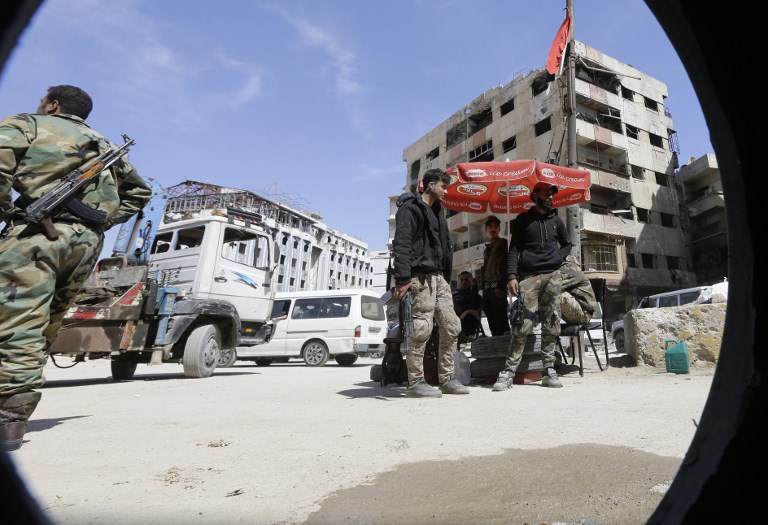France says proof of poison gas attack likely disappearing in Douma


France said on Tuesday it was very likely that evidence was disappearing from the location of a suspected poison gas attack in Syria and that international inspectors are still being delayed from entering the site.
In a statement, the French Foreign Ministry said: "As of today, Russia and Syria still refuse to give inspectors access to the site of the attack.
"It is very likely that proof and essential elements are disappearing from this site," the statement from the ministry said.
Russian Foreign Minister Sergei Lavrov told the BBC on Tuesday: “I can guarantee that Russia has not tampered with the site.”
Russia had earlier said that inspectors from the Organisation for the Prohibition of Chemical Weapons would soon be allowed into Douma, according to the BBC.
The investigators arrived in Syria on Saturday, following US-led air strikes on the country, but have not been given access to the town on the outskirts of the capital while Russia has cited “security concerns”, according to the BBC.
Syria and Russia have denied that there was an attack and have accused rebel sympathisers of staging the incident.
Read more ►
Douma attacks: What we know so far, and what world powers have told us
The US and its allies, the UK and France, have said they believe it is only the latest in a series of gassings ordered by the Assad government and launched air strikes last Friday night against Syrian military targets in response.
Using information available through open sources, the Bellingcat website concluded last week that one of the attacks was "most likely" the result of chlorine gas dropped by the Syrian air force from a helicopter.
Russian military chemists who visited Douma the day after the alleged attacks were unable to find any trace of chemical weapons, according to Russian officials.
Relief organisations have said that more than 70 people were killed on 7 April in two attacks on the Eastern Ghouta town which was the last rebel-held area near the capital.
Hours after the attack, Jaish al-Islam, the group which had held the town from late 2013, agreed to a final evacuation deal with the Russian and Syrian governments.
[contf]
[contfnew]

middle east eye
[contfnewc]
[contfnewc]




